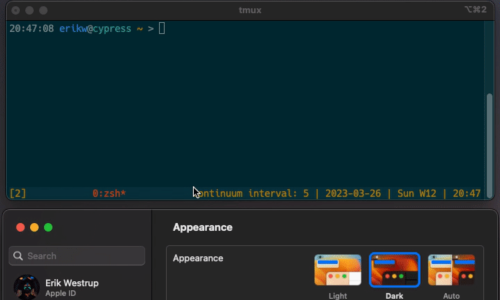$ blog init
Welcome
$ curl -sIX GET erikw.me/blog/ | head -1
HTTP/2 200… it’s alive!
With this post I’m opening up my personal blog here! It will host maybe for now most likely tech related entries and maybe some general ones. I think some typical posts would be around problems that I’ve encountered and how I solved them, when I think that my solution could help others in the same spot as I were. Other than that, building this blog in itself is a fun experience to learn some new techs.
The Tech
This blog is is build with the static site generator ( SSG A Static Site Generator compiles the website before deployment. Then the generated web content is simply retrieved as-is by the client without any code running at retrieve time. ) Jekyll A Static Site Generator (SSG) built with ruby. Popularized as of its adoption in GitHub Pages.
which is a part of what is called the Jamstack JavaScript + API + Markup - a way of building and hosting websites.
. Take a look at their page if this is a new term for you (as it was for me) - this way of developing has many benefits to the traditional way of hosting personal websites and blogs!
How I first came across Jekyll A Static Site Generator (SSG) built with ruby. Popularized as of its adoption in GitHub Pages.
was when I was looking in to free hosting alternatives for my website. Up until now I’ve been hosting my bare-bone website on Uberspace which provided me with a familiar environment (like the cli person I am) for web hosting where I have a shell, SSH access, interfacing with a web server’s configuration/logs etc. Think LAMP stack, the classic way of doing web (although I did not use any dynamic parts for my site).
While this setup met all my expectations and I would say this hosting provider is excellent, the opportunity to save some money + learning some new techs made me looking in to using maybe simply GitHub Pages with a supported static site generator, say Jekyll.
However after just some poking around with a stub code base I found that the limitations like that the Jekyll versions are locked and the number of plugins limited, or if you want to circumvent this the build process becomes more cumbersome, or that the git repo can’t be private unless you have a payed GitHub account, would be a too big problem for me. Luckily I found Aleksandr Hovhannisyan’s post about the Jamstack alternative host Netlify. I’ve not heard about Netlify before this but it stroked me as a contender to Heroku. After trying it out for a bit I was sold and the site is now hosted with them, using a neat CI/CD workflow with GitHub.
Well and here we are, let’s see how this blog develops :).






Leave a comment
Your email address will not be published. Required fields are marked *